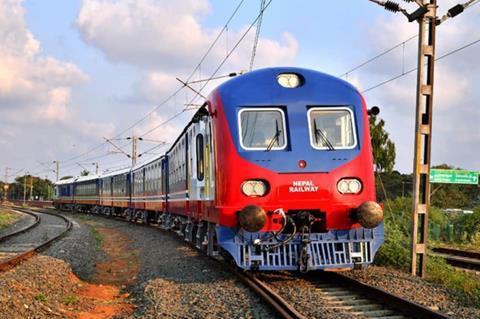
NEPAL: Rail freight movements between India and Nepal are set to increase following the signing of a cross-acceptance agreement as part of India’s ‘Neighbourhood First’ policy to enhance regional connectivity.
The two countries have agreed to permit the international operation of wagons authorised by the other jurisdiction, with all categories of wagons authorised to carry freight on the Indian Railways network now able to be used for shipments to and from Nepal.
Wagons owned by Nepal Railway Co will be permitted to carry both inbound and outbound international traffic on routes between the border crossings at Biratnagar and Birganj and the port of Haldia south of Kolkata, in accordance with IR standards.
The accord has been implemented through a Letter of Exchange amending the Rail Services Agreement which was signed in May 2004 to facilitate cross-border rail operations between Birgunj in Nepal and Raxaul in northern India. It is the fourth amendment to the RSA, following a 2008 provision for new customs arrangements and a 2016 accord facilitating transit traffic to and from the port of Vishakhapatnam.
The provisions formally entered into force on July 9, following an exchange of documents between Dinesh Bhattarai, Secretary at Nepal’s Ministry of Commerce, Industry & Supplies and Sanjay Kumar Mohanty, Member, Operations & Business Development, at India’s Ministry of Railways. The ceremony in Kathmandu was attended by representatives from the Indian Embassy and Nepal’s Ministry of Foreign Affairs.
According to India’s Ministry of Railways, ‘this liberalisation will allow market forces to come up in the rail freight segment in Nepal, and is likely to increase efficiency and cost- competitiveness, eventually benefiting the Nepalese consumer’.
In particular, the agreement is expected to reduce the cost of transport for automotive traffic and other products which are moved in special purpose wagons. Authorised freight train operators in India, including public and private companies that provide container, automotive or special trains, are now able to carry containers and other freight between the two countries, with a particular focus on Nepalese import and export traffic using Indian ports.

















